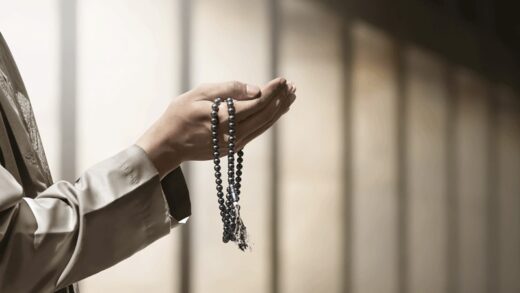Hair transplantation is a treatment method that has been applied very frequently recently. It is usually applied to individuals who have baldness problems after chronic hair loss. It is the transplantation of new hair follicles to the area of sparseness on the scalp. There are many questions in the minds of those who have this procedure. But Muslims, in particular, focus too much on the religious aspect of the process. For example, they wonder when to pray after hair transplant.
How to Pray After Hair Transplant?
First of all, learning that it is not forbidden to have hair transplantation for those who have religious concerns will alleviate their concerns about this issue. Many religious scholars offer different opinions about whether hair transplantation is forbidden or not. However, in general, there is a prevailing opinion that there will be no problem if the operation is performed from your own hair. In addition, the new hair follicles used in hair transplantation procedures belong to the patient himself. That is, this is not a radical change, but only a small displacement.
There is no harm in prayer after hair transplant. However, water should not touch your scalp until the first day of hair washing after the procedure. For this reason, you may not be able to worship for two after the maximum procedure. Only then can you perform the gusül ablution and pray. Praying salah after hair transplant is a subject that many patients are curious about. You don’t have to worry about that. Because this process is very simple and the healing process is quite fast. Therefore, there is no obstacle for you to pray after the procedure.
Can I Pray After Hair Transplant?

First, of course, you can pray. However, you should do this by sitting for a while. Immediately after hair transplant surgery, we encourage our patients to stay away from sunlight and dirty areas. The reason for this is that there is a danger of infection and damage to the grafts. When you pray, you have a high risk of sweating because you will put your forehead on the prayer rug. This, in turn, increases the likelihood of infection. It is also risky to have dust particles on the prayer rug.
Washing the prayer rug or putting a clean cloth may also not work. Because none of these measures will prevent you from sweating. In addition, you will receive local anesthesia during the procedure. Therefore, you may feel dizziness and nausea after the procedure. If you pray standing up, it can be dangerous for you. At any moment you can fall and hurt yourself. However, your trading area will also be damaged. For this reason, we recommend that you pray while sitting.
The first 2 weeks after a hair transplant
In the first two weeks after surgery, you should be very careful not to dislodge the grafts. Especially when praying. Another common question that our clinic takes is related to ablution. Ablution is a routine procedure performed before each prayer. In the meantime, you will need to wet your head. Be careful not to damage the grafts while doing this. In addition, grafts transplanted into your scalp are quite vulnerable. Therefore, the first 5 days after surgery are important. During this time, they are easily injured. That is why you need to be very careful.
As a result, people with religious concerns may also have hair transplant surgery. However, they have a little more responsibilities in the healing process. If you have religious concerns and want to have a hair transplant, you need to learn the day you can do whatever you want. You have to have some patience in the process. After the procedure, you need to pray sitting for the first 2 weeks. You can then continue praying as you are used to.
Frequently Asked Questions
How long after hair transplant can I bend over?
For this, at least two weeks must pass after the procedure. 48 hours is sufficient for light bends. But if you want to pray, the time you need for this is two weeks. During this time, you need to perform the prayer while sitting.
How many days rest after hair transplant?
The most critical period after hair transplantation is the first three days after the application. No matter by what method it was planted, the holes drilled, albeit at the micro level, have not healed yet. The patient should rest at home for 3 days after hair transplantation. He should consume plenty of water and take antibiotics on time.
Can I wear hijab after hair transplant?
If you’re not going to wrap the scarf tightly, it’s okay to wear it. Your doctor will bandage your scalp at the end of the procedure. This bandage should not be opened. It’s important to protect your compute region. Therefore, do not tie your scarf tightly. You can cover it quite loosely.